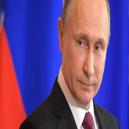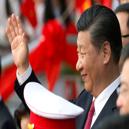Теория глобального управления Си Цзиньпина пропагандирует мирное развитие, взаимовыигрышное сотрудничество, отстаивает строгое соблюдение Устава ООН, настаивает на создание отношений нового типа между великими державами с учетом интересыов средних и небольших государств. Данная концепция предлагает развивать роль уже существующих международных организаций, а также способствовать созданию новых площадок; не только активно брать на себя международную ответственность и обязанности, но и придерживаться принципов своих возможностей; прислушиваться и к требованиям других стран, и к голосу Китая; делать упор и на глобальное, и на национальное управление. Под руководством этой теории Китай принимает активное участие в глобальном управлении, развивает торгово-экономическое сотрудничество с другими странами, активно реализует инициативу «Один пояс, один путь», энергично развивает культурные связи между Китаем и другими государствами, содействует прогрессу человеческой цивилизации во взаимном обучении.
THE THEORETICAL CONNOTATION AND SIGNIFICANCE TO GUIDE
PRACTICE OF GLOBAL GOVERNANCE CONCEPT OF XI JINPING
Xi Jinping’s global governance concept advocates peaceful development, win-win cooperation, and a new international order under adhering to the UN Charter, which strives to build a new type of relationship between big powers also concerned interests of small and medium-sized countries. To play the role of existing international organizations and promote the establishment of the new platform not only actively assumes international responsibilities and obligations but also follows the respective principles of competence. It listens to both the requirements of other countries and the voice of China, emphasizing both global governance and national governance. Under the guidance of this theory, China is actively participating in global governance, developing economic and trade cooperation with other countries, actively implementing the “Belt and Road Initiative” , vigorously carrying out cultural exchanges between China and foreign countries, and promoting the progress of human civilization in mutual learning.
 Ранний опыт государственного строительства большевиков и Конституция РСФСР 1918 года
Ранний опыт государственного строительства большевиков и Конституция РСФСР 1918 года
 7
7
 25489
|
Официальные извинения
25489
|
Официальные извинения
 972
972
 106298
|
Становление корпоративизма в современной России. Угрозы и возможности
106298
|
Становление корпоративизма в современной России. Угрозы и возможности
 239
239
 85183
85183










